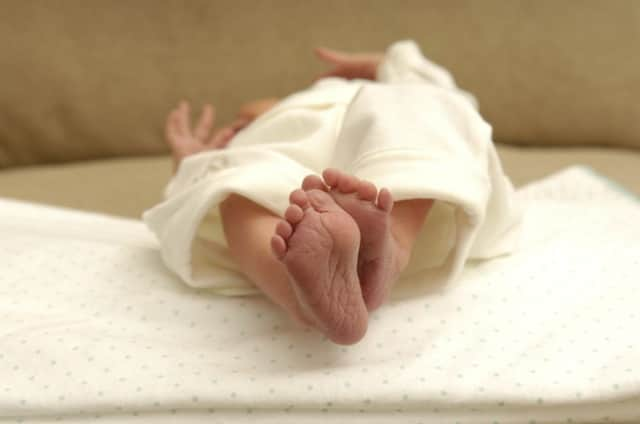Neonatal hospice care is a new, and vital, focus


FOR any new parents, getting the right care for their new baby is hugely important. But nowhere is this more crucial than in neonatal wards and children’s hospices, when a very young baby needs palliative care.
A baby can be just months, even days or hours old when parents are told that no further treatment will make their child better. Tragically, not all babies can improve to the point where they will survive longterm. Clearly this is a very sensitive subject and it has it be remembered that the vast majority of babies in neonatal and special care baby units do improve. But in such dreadful situations, vital care is required for these babies and their families, and clinicians across Scotland are working together to make sure it’s the very best care it can be.
Advertisement
Hide AdAdvertisement
Hide AdAs the only children’s hospice charity in Scotland, Children’s Hospice Association Scotland (CHAS) has seen a steady rise in the number of babies referred to us who are very young and require palliative care. Up until now the children’s hospice movement has not concentrated on this area. Each year in Scotland, some 400 to 450 children and young people die before the age of 18. Of these, more than 100 are babies less than one year old, and most die in a hospital neonatal ward. So we are working with baby units across Scotland and asking ourselves if this is the very best outcome for those babies and their families, or whether we can provide more support to those whose baby needs end of life care.
It is clear that palliative care is already very good in neonatal units, and paediatric doctors and nurses in Lothian are working closely with CHAS on a pilot scheme to assess whether there is any way to improve it further, and to ensure that parents are fully involved in very important decisions being made for their babies. Other areas in Scotland and across the UK are watching with interest for its early results. Senior nurses and doctors from the neonatal unit in NHS Lothian and Rachel House Children’s Hospice already visit each other’s facilities to see what they can learn from each other, and further educational sessions are planned this year.
As a result, for those babies with increasing palliative care needs, this may mean increased choices for their parents. It is envisaged that some of these babies could be cared for in their own homes or in one of Scotland’s only two children’s hospices for the final days of their short lives. The aim of the pilot in Lothian is to ensure that the holistic and symptomatic care for those babies who will not get better is as good as it can be.
In a neonatal unit there definitely needs to be an emphasis on high technology, and babies often have an array of tubes attached to them in the hope that they respond to treatment and gradually get better. When this no longer becomes possible, studies have identified how valuable it is for the whole family to have precious time together and share experiences that will provide long-lasting memories.
CHAS already has experience in caring for these very poorly babies and is helping parents to do things like taking their babies for a walk in their new prams, and spending time as a family with a fuller involvement for the baby’s brothers and sisters.
For siblings, their involvement has often had to be quite limited when in a neonatal unit – previously, looking at their baby brother or sister through a transparent plastic cot lid was all that was possible.
One family I met had recently moved their baby daughter from the hospital to Rachel House Children’s Hospice for the final few days of her life. The baby wasn’t attached to any machines, she looked just like any other beautiful, small baby. She was able to be held, dressed and fed in a homely bedroom, with no noisy bleeps or medical paraphernalia, and for the last few days they were with her, her parents were able to feel like a “normal” mum and dad with their baby.
It’s the small things that really matter, because it is these thoughtful considerations that make the biggest impact on the parents. Together with clinical colleagues, new care guidelines are being created that cover palliative care options for babies under one, so that the families’ wishes are fulfilled – perhaps they want to take photos with their siblings, read them a story or give their baby a bath. It’s not too much to ask that we help families make the very most of their final days or hours with their babies: we just have to make it happen and here in Scotland, we are leading the way.
• Dr Pat Carragher is medical director to CHAS (Children’s Hospice Association Scotland)
SEE ALSO